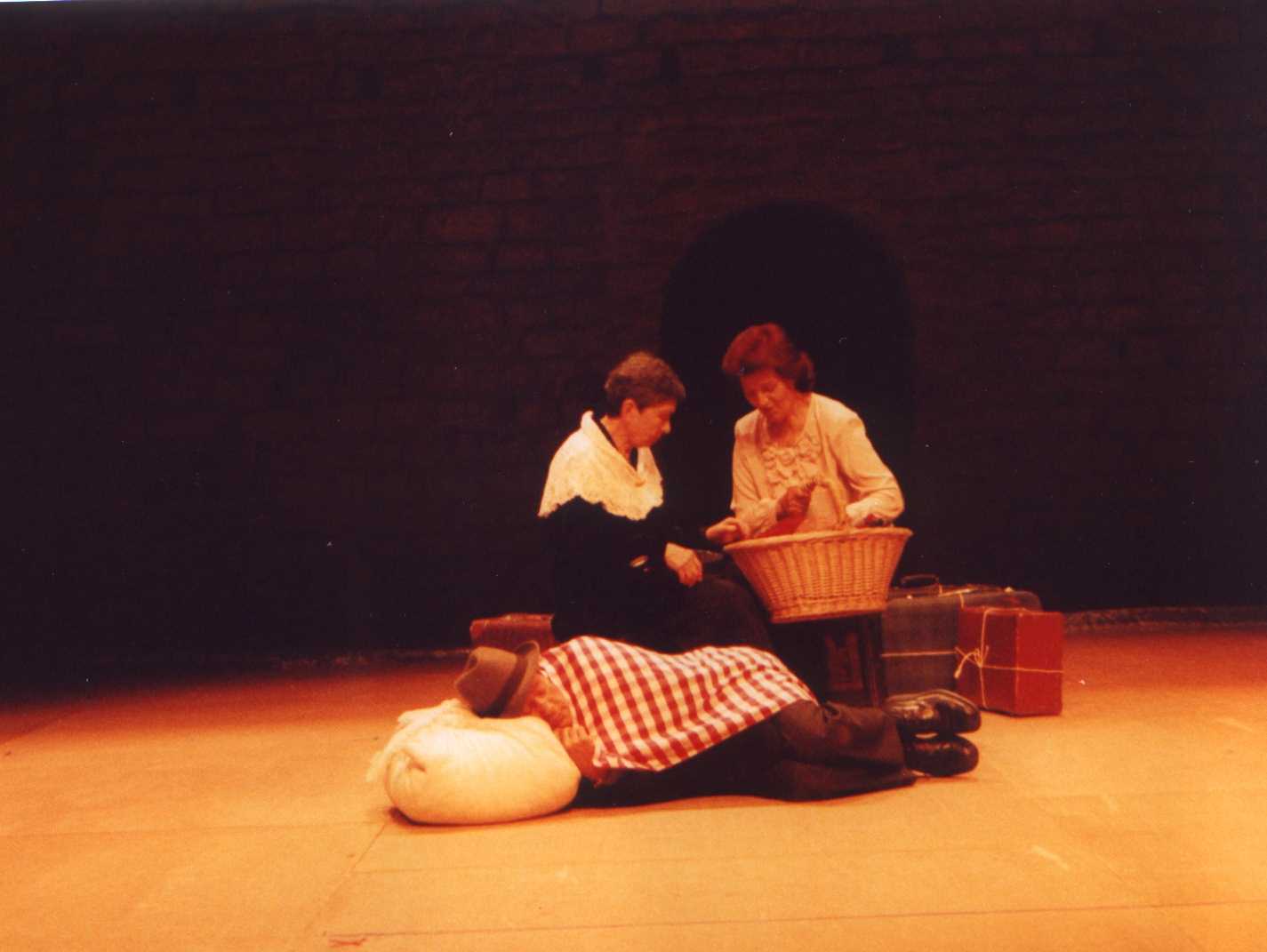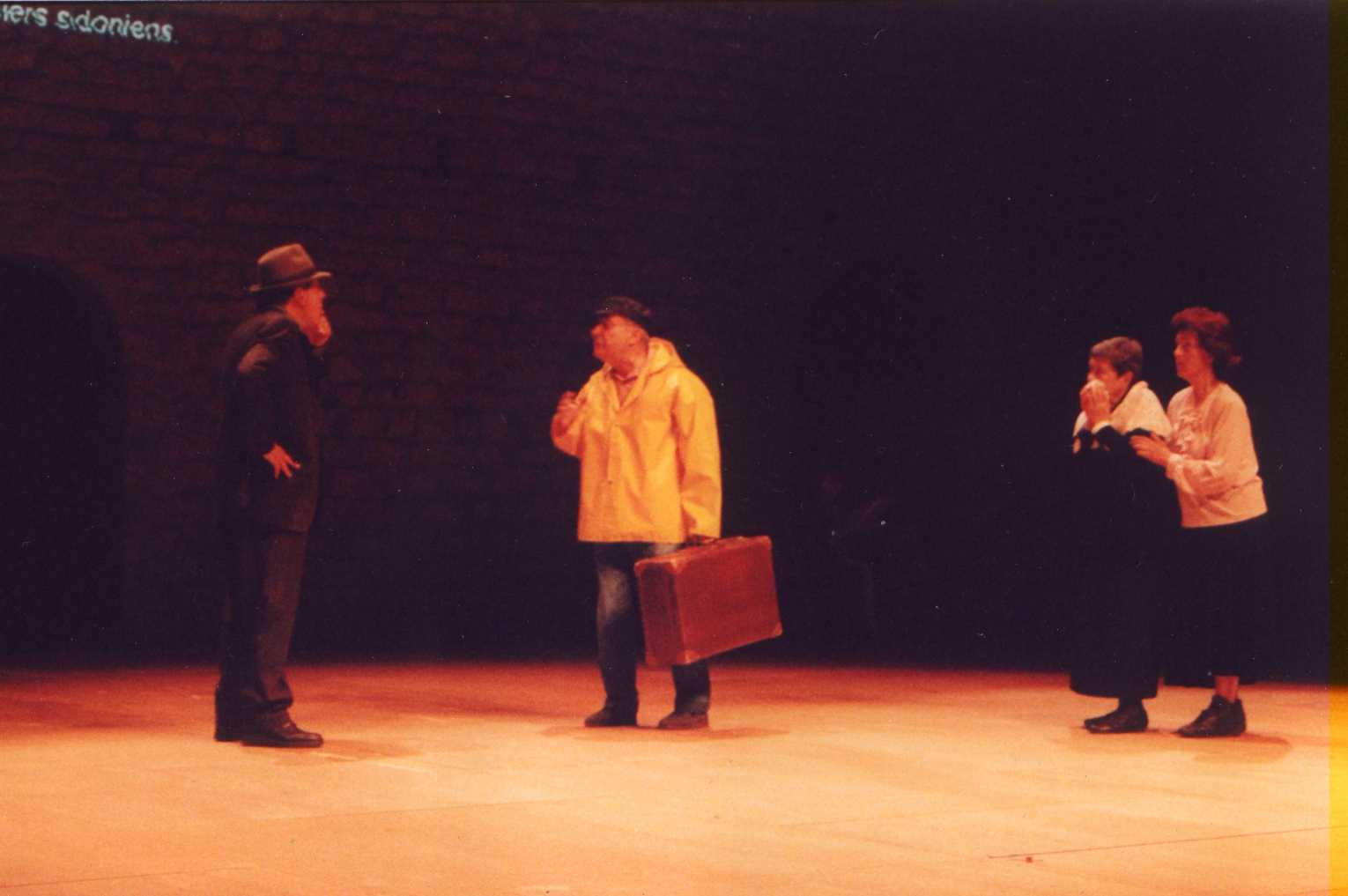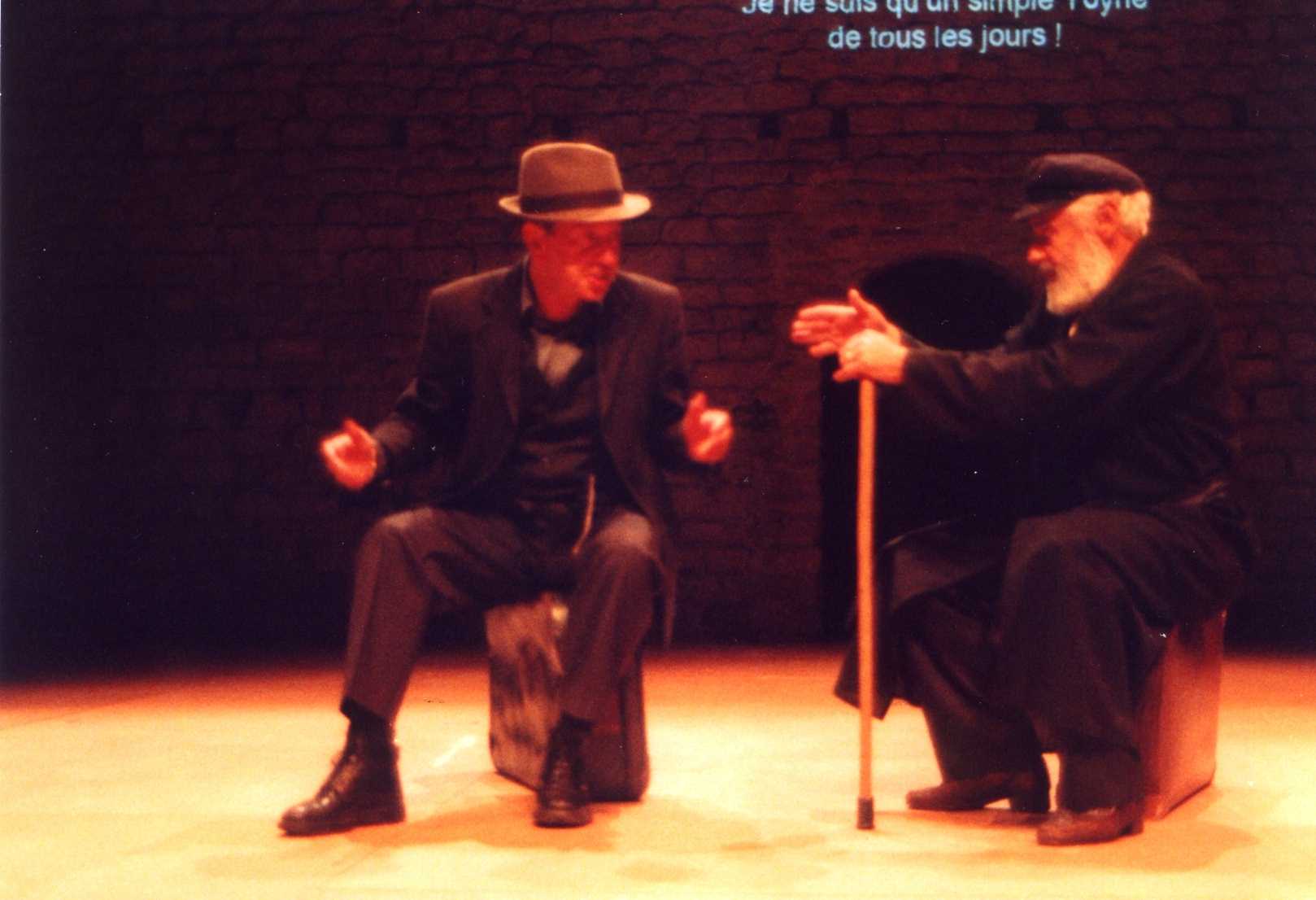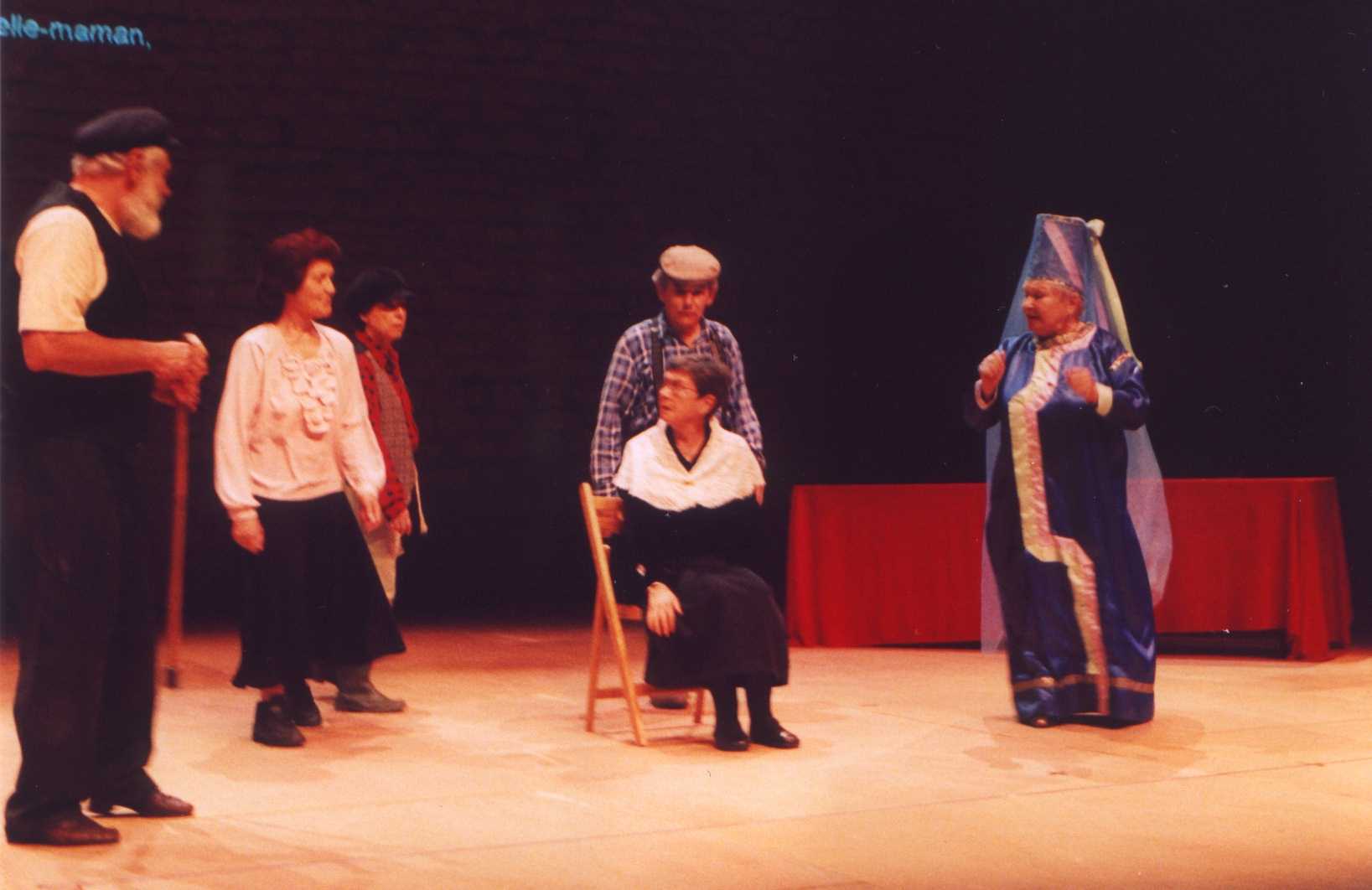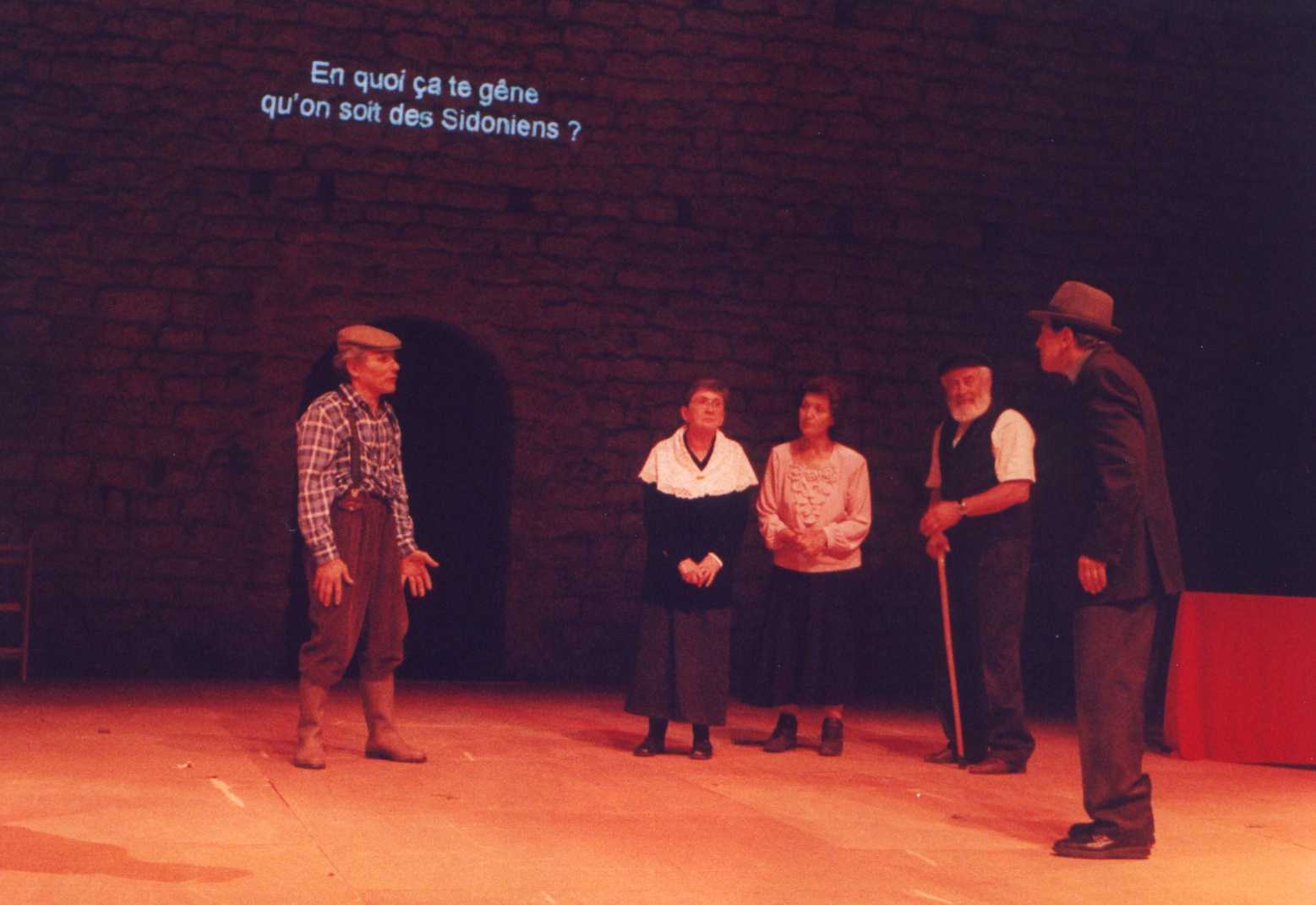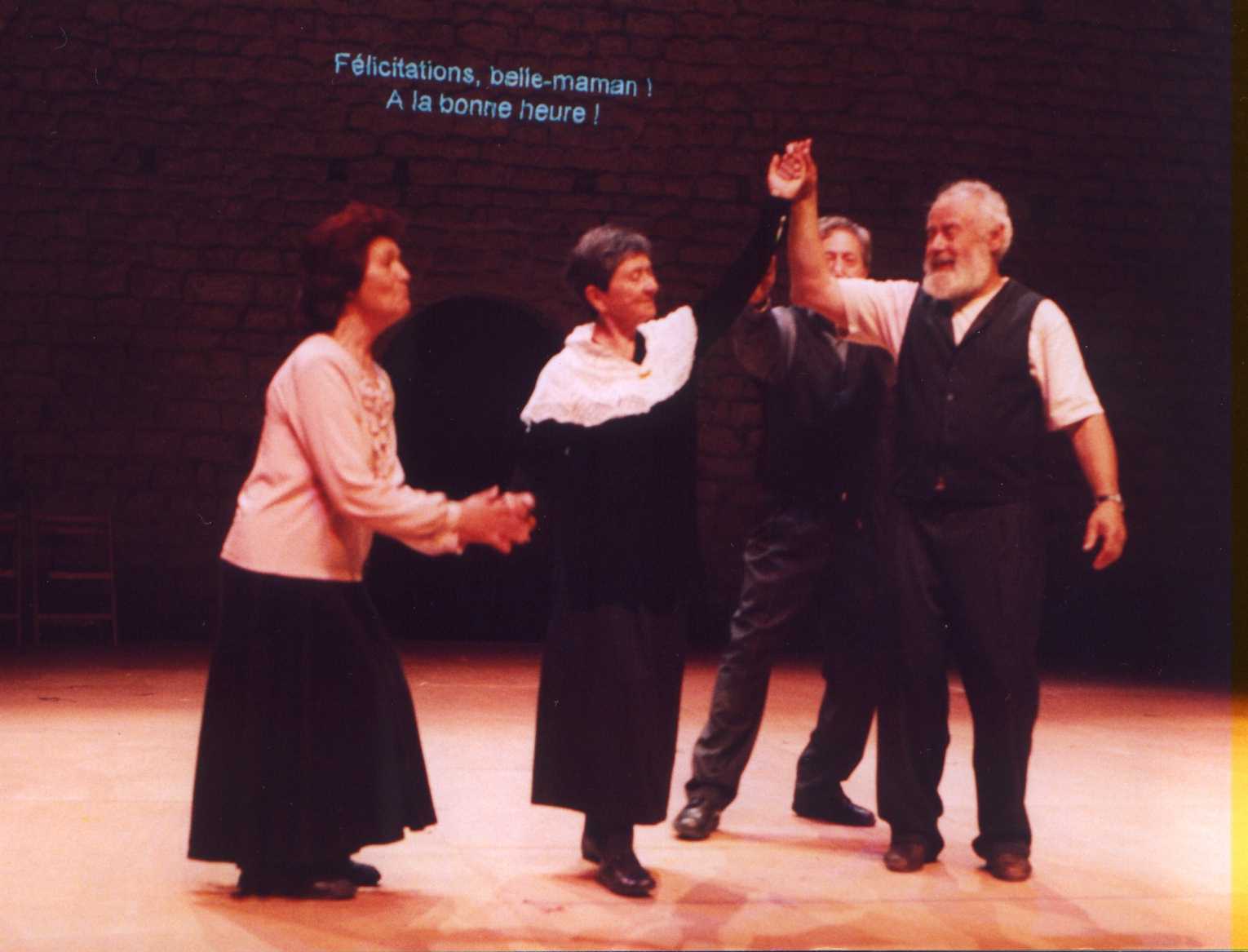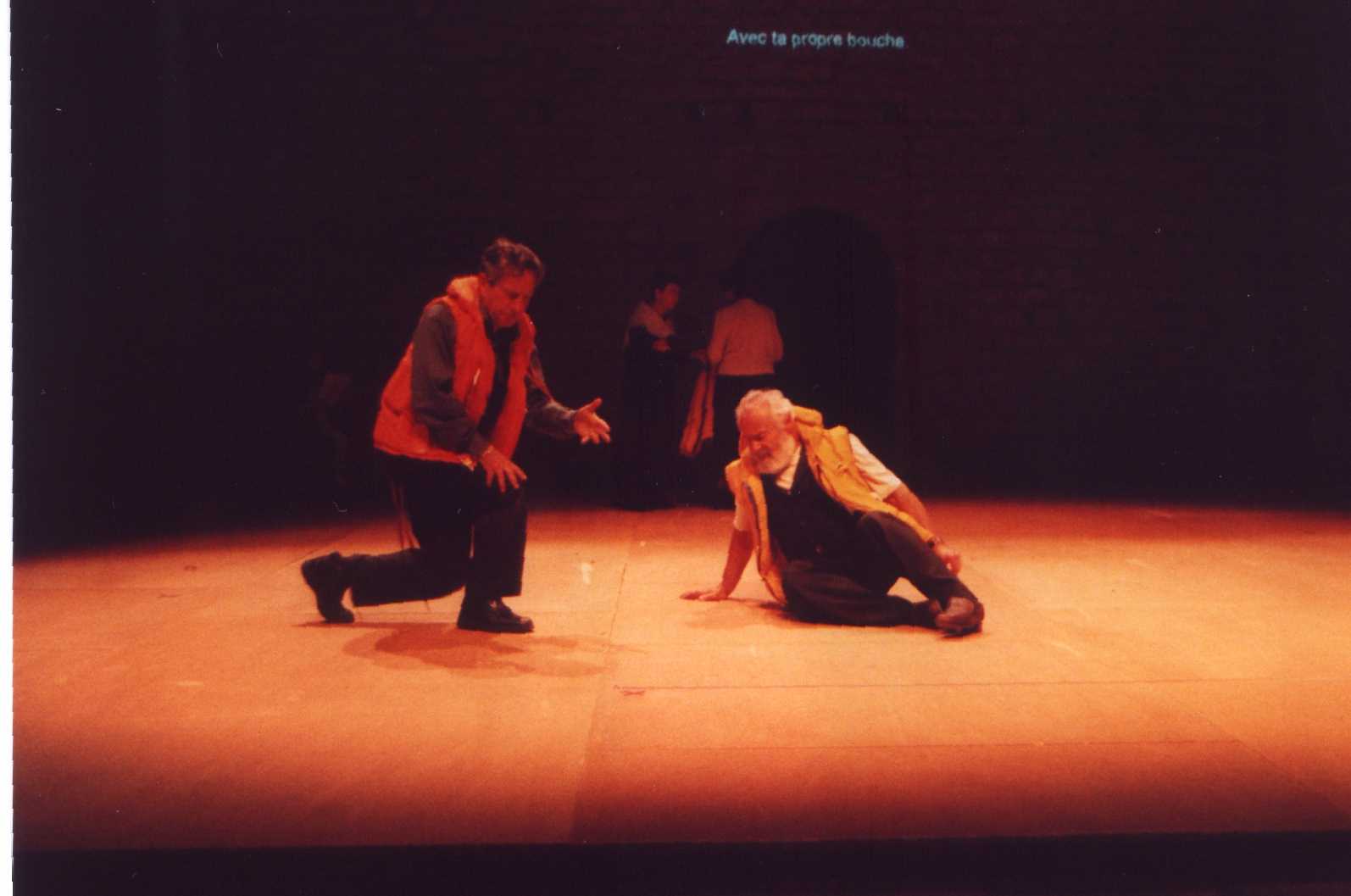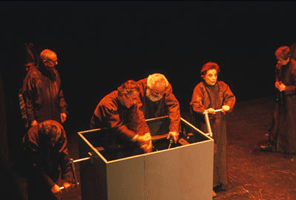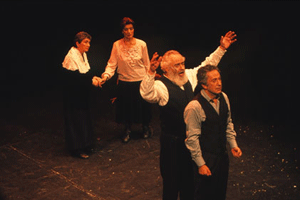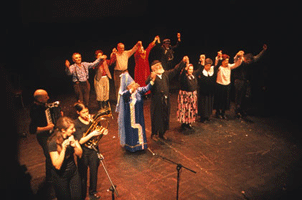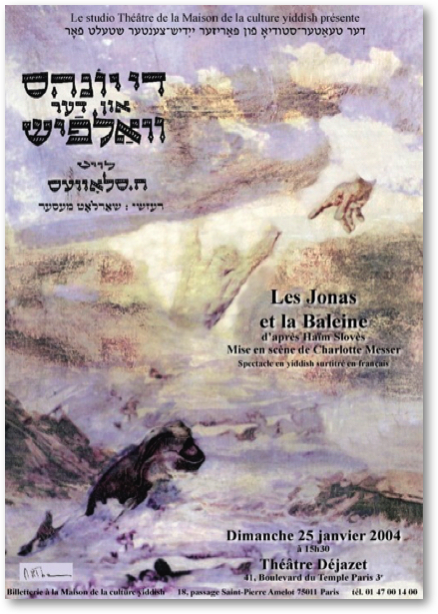
DI YOYNES UN DER VALFISH
THE JONASES AND THE WHALE
HAÏM SLOVES
THE JONASES AND THE WHALE
HAÏM SLOVES
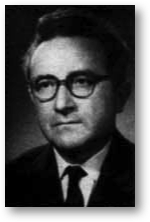
Chaïm Sloves was born in Bialistok (Poland) in 1905. After he immigrated to France in 1926, he became an important player in the Yiddish-speaking society in Paris, before and after World War II. A lawyer, a journalist and a playwright, Sloves was profoundly attached to the Jewish destiny and desired to participate, through his theatre works, in the emergence of a modern, progressive Jewish culture. He authored several plays in Yiddish, some of which were staged in the fifties and sixties by Yiddish theatres in Argentina, France, Poland, Romania, United States and Belgium.
The play “Yoynes un der valfish,” written immediately after the war, was published in Paris in 1953. In this play he wants, as he says it in the foreword, “to operate a synthesis between a new, modern contents and a traditional but renovated Jewish form, and to enhance it by a touch of authentic popular culture.”
He died on September 8, 1988 after a long sickness.
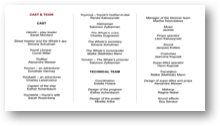
CAST & TEAM
CAST
Hérold – play leader
Sarah Montard
Street hawker and the Whale’s spy
Simone Schulman
Yoyné (Jonas)
Lionel Miller
Yodiber
Alexandre Messer
Yonosn – an adventurer
Dorothée Vienney
Yolokakh – an adventurer
Charles Leiserowicz
Captain of the ship
Esther Achenbaum
Yoynékhé –Yoyné’s wife
Sarah Rosenberg
Yoynové –Yoyné’s mother-in-law
Renée Kaluszynski
Helmsman
Salomon Zylberman
The Whale’s voice
Charles Dugowson
The Whale’s secretary
Simone Schulman
The Whale’s commander
Malké (Mathilde) Mann
Yorotsn – The Whale’s prisoner
Salomon Zylberman
TECHNICAL TEAM
Coordination
Estelle Hulack
Design of the program
Esther Achenbaum
Design of the poster
Mireille Arthe
Manager of the klezmer team
Marthe Desrosières
Music
Jacinta
Props operator
Léon Kaluszynski
Sound
Jacques Koltein
Costumes
Jeannine Kopciak
Super-titles operator
Henri Kopciak
Translation
Malké (Mathilde) Mann
Design of super-titles and props
Alexandre Messer
Makeup
Régine Nebel
Sound effects
Guy Senaux
CAST
Hérold – play leader
Sarah Montard
Street hawker and the Whale’s spy
Simone Schulman
Yoyné (Jonas)
Lionel Miller
Yodiber
Alexandre Messer
Yonosn – an adventurer
Dorothée Vienney
Yolokakh – an adventurer
Charles Leiserowicz
Captain of the ship
Esther Achenbaum
Yoynékhé –Yoyné’s wife
Sarah Rosenberg
Yoynové –Yoyné’s mother-in-law
Renée Kaluszynski
Helmsman
Salomon Zylberman
The Whale’s voice
Charles Dugowson
The Whale’s secretary
Simone Schulman
The Whale’s commander
Malké (Mathilde) Mann
Yorotsn – The Whale’s prisoner
Salomon Zylberman
TECHNICAL TEAM
Coordination
Estelle Hulack
Design of the program
Esther Achenbaum
Design of the poster
Mireille Arthe
Manager of the klezmer team
Marthe Desrosières
Music
Jacinta
Props operator
Léon Kaluszynski
Sound
Jacques Koltein
Costumes
Jeannine Kopciak
Super-titles operator
Henri Kopciak
Translation
Malké (Mathilde) Mann
Design of super-titles and props
Alexandre Messer
Makeup
Régine Nebel
Sound effects
Guy Senaux
THE JONASES AND THE WHALE
The play is a free adaptation of the story of the prophet Jonah from the biblical Book of Jonah. In the metaphorical spirit of the play the main characters are members of a small nation of “Yoynes” (a word derived from the Yiddish pronunciation of the name Jonah) that are victims of persecution threatened by death. Their enemy is “Niniveh” and it’s main instrument of power, the “Whale” (Valfish). It spreads death and destruction all over the world and seeks to exterminate the “Yoynes.”
The play is composed of three acts preceded by a prologue.
Prologue
Actors in plain cloth gather around their leader, who explains the play that they are about to play, and answers some important questions.
Act I
Yoyne (Jonah) does not want to be a prophet. He tries to run away to Tarsis with his wife Yoynekhe and mother-in-law Yoynove. With the help of an itinerant merchant, that happens to be also the Whale’s spy, he finds a ship that will take them there. In the meantime appears a couple of adventurers that elaborate a complicated scheme for penetrating into the Whale in order to find a precious stone that is supposed to be hidden there. During the journey a violent storm breaks out on the sea, threatening to sink the ship and its passengers. Through the tempest the voice of the Whale demands that all the Yoynes be thrown out into the sea, so that the other passengers can continue the journey in peace. The helmsman of the ship decides to save the Yoynes by providing them a row-boat, food and false documents of Sidonians.
Act II
The Whale swallows the Yoynes. The commander of the Whale announces that nobody gets out alive from there: the Yoynes are burnt right away, the others work until exhaustion. Thanks to their false documents our heroes are spared. But soon their real identity is discovered and they are sentenced to spin gold out of the Whale’s oil, until their death.
Act III
Certain of their imminent death, Yoyne and his companions decide to blow up the Whale by igniting all the oil that is around. They accept to perish along with their enemy. The strategy succeeds, the Whale is destroyed but the prisoners are saved and get to the sea-shore. After all the ordeals Yoyne accepts his call to prophecy. He will go to Niniveh with his wife. And like in all Jewish stories, there is also an unexpected marriage. But how about our two adventurers? Will they find the treasure?
The play is a free adaptation of the story of the prophet Jonah from the biblical Book of Jonah. In the metaphorical spirit of the play the main characters are members of a small nation of “Yoynes” (a word derived from the Yiddish pronunciation of the name Jonah) that are victims of persecution threatened by death. Their enemy is “Niniveh” and it’s main instrument of power, the “Whale” (Valfish). It spreads death and destruction all over the world and seeks to exterminate the “Yoynes.”
The play is composed of three acts preceded by a prologue.
Prologue
Actors in plain cloth gather around their leader, who explains the play that they are about to play, and answers some important questions.
Act I
Yoyne (Jonah) does not want to be a prophet. He tries to run away to Tarsis with his wife Yoynekhe and mother-in-law Yoynove. With the help of an itinerant merchant, that happens to be also the Whale’s spy, he finds a ship that will take them there. In the meantime appears a couple of adventurers that elaborate a complicated scheme for penetrating into the Whale in order to find a precious stone that is supposed to be hidden there. During the journey a violent storm breaks out on the sea, threatening to sink the ship and its passengers. Through the tempest the voice of the Whale demands that all the Yoynes be thrown out into the sea, so that the other passengers can continue the journey in peace. The helmsman of the ship decides to save the Yoynes by providing them a row-boat, food and false documents of Sidonians.
Act II
The Whale swallows the Yoynes. The commander of the Whale announces that nobody gets out alive from there: the Yoynes are burnt right away, the others work until exhaustion. Thanks to their false documents our heroes are spared. But soon their real identity is discovered and they are sentenced to spin gold out of the Whale’s oil, until their death.
Act III
Certain of their imminent death, Yoyne and his companions decide to blow up the Whale by igniting all the oil that is around. They accept to perish along with their enemy. The strategy succeeds, the Whale is destroyed but the prisoners are saved and get to the sea-shore. After all the ordeals Yoyne accepts his call to prophecy. He will go to Niniveh with his wife. And like in all Jewish stories, there is also an unexpected marriage. But how about our two adventurers? Will they find the treasure?
